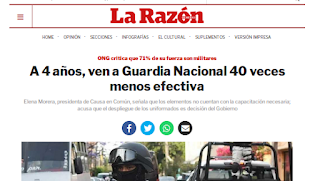The World Cup, Qatar and Human Rights.
The World Cup has started in Qatar, and the football is now making the news. But in the years before the tournament, Western media and NGOs (WMN) criticised the poor human rights record of the host nation, threatening to spoil the party.
Despite this, Qatar and FIFA continued to anger the WMN in the weeks before the tournament. Incidents included expensive and shoddy accommodation, a last-minute alcohol ban at stadiums, payments for people to attend games and a bizarre “I am a…” speech by FIFA president, Gianni Infantino. Reminding everybody of the corrupt FIFA process that awarded Qatar the tournament in 2010.
Qatar acts like this for a reason. The World Cup helps them to achieve an independent foreign policy. One that they hope will give them enough soft power to defend the country in the region. In particular, from their more powerful neighbours, such as Saudi Arabia or Iran.
FIFA also ignores the West's critiques, though for a different reason. Namely, African and Asian football associations' votes ensure Infantino's control of the organisation.
Even so, the criticism of Qatar is more than what we have seen in previous mega-sports events held in countries like Brazil and Russia (Ziadeh et al., 2022; M. Gutierrez & Bettine, 2022:11-12).
Human Rights and capitalism.
To understand why, we will explore how human rights, Islamophobia, imperialism and international sporting organisations benefit capitalism.
Let us begin by looking at human rights. Marx remarked in 1844 that they had a limited pro-capital nature, and the modern version is no better. In particular, they play a central role in US foreign policy. Where they have underpinned US democracy promotion since the 1970s. From this, a strategy emerged where human rights serve a dual purpose. First, they promote the individual over groups that advance the greater good. That is to say, states like the US use human rights to promote a capitalist society over a communal one.
Below are a few examples to show how it works.
Destroy labour power.
This example will show how capitalism has negated union power and enabled a capital-friendly human rights sector to emerge in its place. First, the context, Labour power over the last five decades has weakened as the world’s economy financialised. Two processes are of note here. First, de-industrialisation changed the labour market, which cut unions from their primary funding: workers. While second, new laws reduced union power for those they still represented: public and industrial sector workers.
In this environment of union retreat, human rights groups moved into that space with funding from states and philanthropreneurs. Unfortunately, while NGOs draw attention to labour issues, unions are more effective (Dawkins & Dawkins, 2022).
Qatar is a good example here. NGO investigations raised awareness of the conditions for migrant labour, but the outrage has changed little for migrant workers in Qatar. Yet, if a union went on strike in the media, for instance, until conditions in Qatar changed, profits would have been under pressure. The type of pressure that brings actual change.
Limit LGBT+ rights.
The second example where we see it work is gay marriage. Today, any couple can celebrate their love openly and legally in many countries. But it is a limited right that does not address the LGBT+ community's genuine issues.
The US is an instructive case here. In California, wealthy men from Silicon Valley spent a lot of money to help pass gay marriage laws. This reform has helped many LGBT+ couples where there is a stable economic foundation. But none of this helps the high number of young and homeless in the LGBT+ community. That would need a collective effort and the resources of a community-focused state.
Justify imperialism through Human Rights and Islamophobia.
The second use of human rights is to justify imperialism to the voter (Mott 2022:11). The US, for example, has used protection doctrines, feminism and LGBT+ issues to vindicate anti-Muslim policies. Issues the media has filtered to the public for over two decades: resulting in a human rights discourse that has normalised Islamophobia. This shows why the West criticises Qatar more than non-Muslim nations, despite them being allies. One that houses a US military base and has signed a large energy deal with Germany.
This discourse, though - despite its negative effects on petro states - plays a critical role in protecting capitalism. First, Western states use it to hide how they enable the human rights records of oil-rich states. A policy that the world's addiction to fossil fuels drives. While second, it ignores that colonialism created the current map of the Middle East. For this reason, the WMN criticisms will change little. And as if to prove the point, Qatar, as noted above, has ignored them.
Capitalism and International Sporting Organisations.
That brings us to how international sports organisations sustain capitalism. The main ones are FIFA and the International Olympic Committee. Both were born in the early 20th century, products of the Western capitalist system. And they serve, in general, two functions beyond their obvious sporting purpose. First, they re-direct resources from social services. Recent examples are Athens, Greece 2004 and Brazil 2014 and 2016. Second, they give legitimacy to nefarious pro-capitalist states. Examples include the 1936 Olympics in Hitler’s Germany and the 1978 World Cup in Argentina run by a murderous military junta.
In the final analysis, human rights have a contradictory effect. They promote good standards but distract from a greater social goal: the reform of capitalism to reduce poverty. And as such, they embed in things that support capitalism, including FIFA, the western media and many states.


Comments
Post a Comment